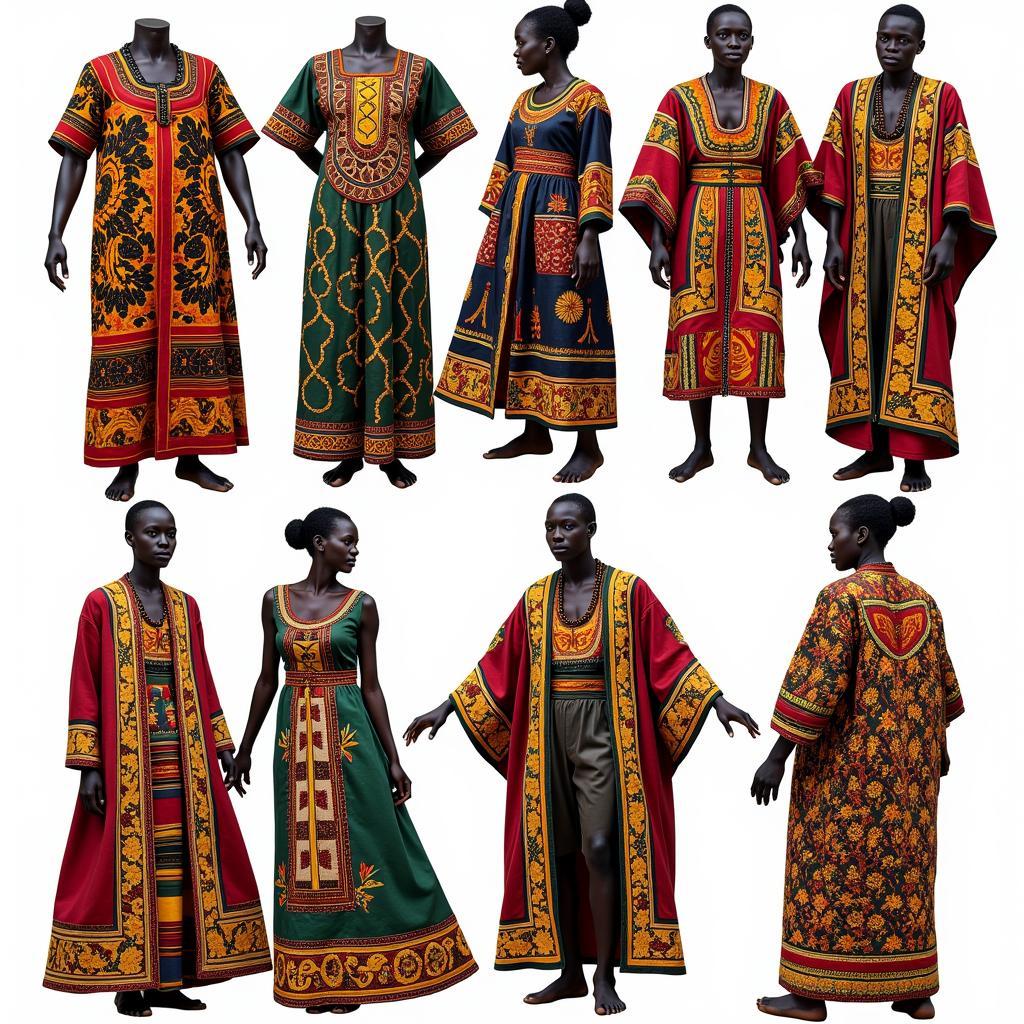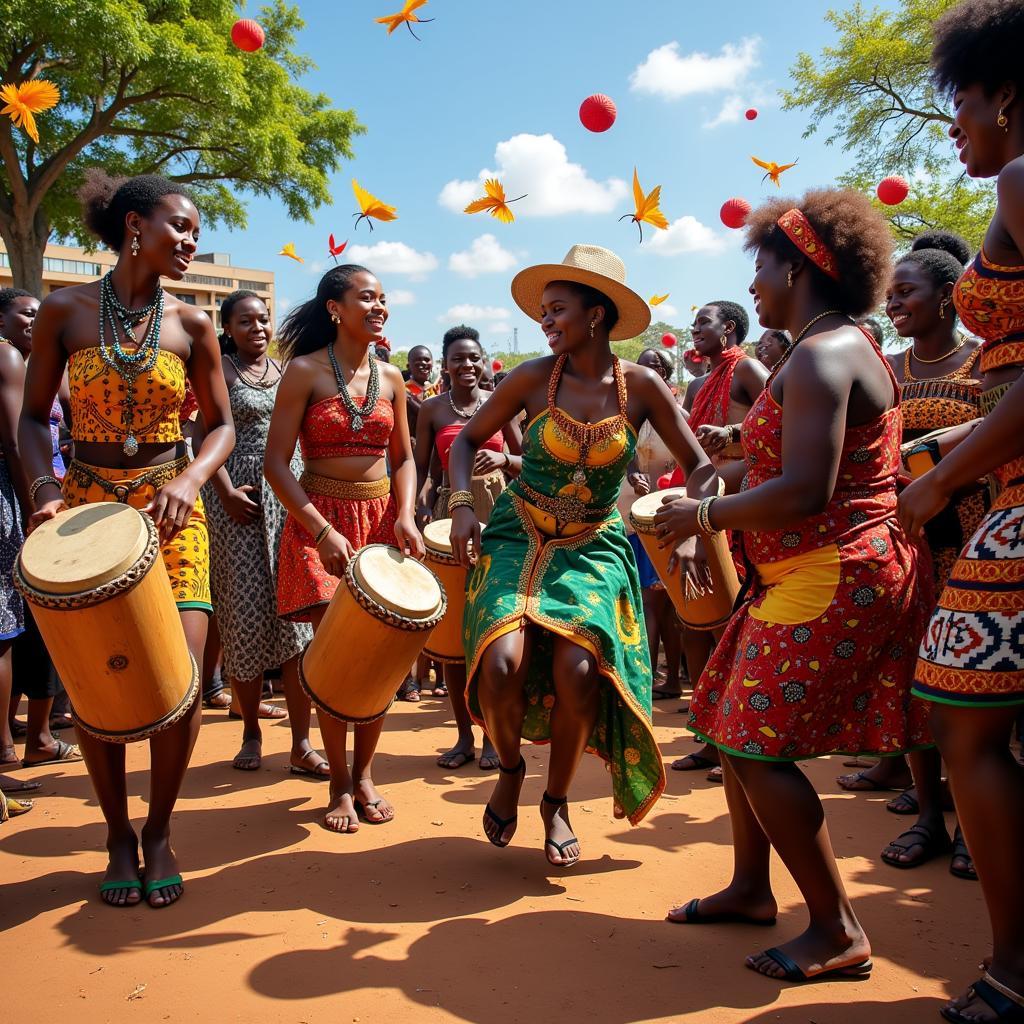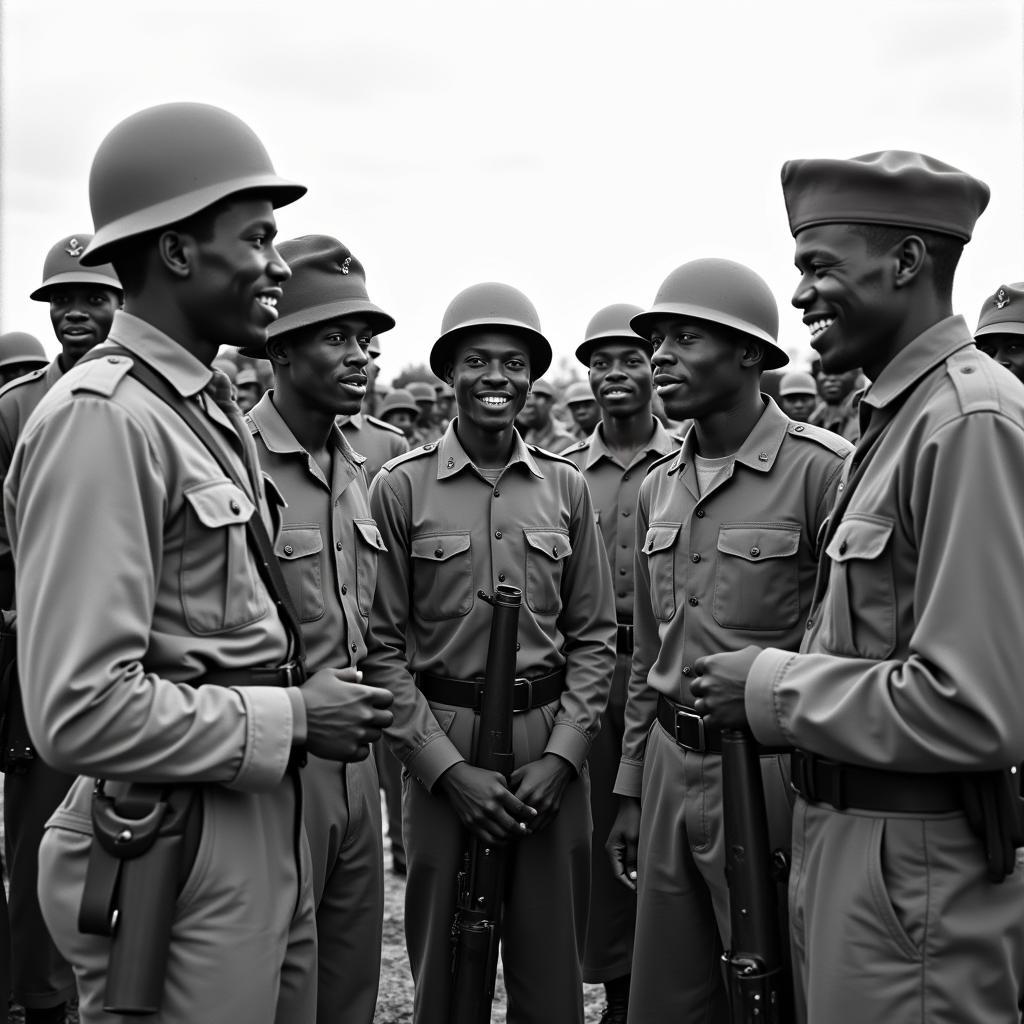18th Century African Music: A Journey Through Time and Tradition
18th-century Africa was a vibrant tapestry of diverse cultures, languages, and musical traditions. While Western musical history often focuses on European developments, the African continent was experiencing a flourishing of its own, marked by unique rhythms, instruments, and vocal styles. Exploring this era’s music unveils a fascinating world of storytelling, social commentary, and spiritual expression that continues to resonate today.
The Rhythmic Heart of Africa: Drumming and Dance
Drums were, and remain, the heartbeat of African music. Their rhythmic patterns, ranging from the deep, resonant bass of the talking drum to the high-pitched, complex rhythms of the djembe, provided the foundation for many musical forms. These rhythms not only set the tempo but also served as a means of communication, conveying messages and narratives across vast distances.
“The rhythmic language of the drum is as vital to African culture as the spoken word,” explains Dr. Nsima Ndombe, a renowned ethnomusicologist. “It’s a way of expressing emotions, sharing stories, and connecting with ancestors.”
Dance was intricately intertwined with music in 18th-century Africa. From the graceful movements of the Yoruba in Nigeria to the energetic steps of the Zulu in South Africa, dance served as a way to celebrate life, commemorate ancestors, and honor deities.
Instruments of Tradition
Alongside the drum, a diverse array of instruments added color and complexity to 18th-century African music. The melodious sounds of the kora, a 21-string harp-lute from West Africa, provided a soothing backdrop for storytelling and praise songs. The xylophone, often constructed from bamboo or wood, offered bright, percussive melodies.
“Each instrument carries its own story,” notes Dr. Ndombe. “They represent the ingenuity and artistic expression of the people who created them.”
Music and Social Life
Music played a central role in daily life during the 18th century. It accompanied farming rituals, weddings, funerals, and community gatherings. These occasions served as opportunities to share stories, solidify social bonds, and celebrate the collective identity of the community.
How did music affect community life in the 18th century?
Music was a powerful tool for social cohesion, uniting people in a shared cultural experience. It was also used to convey important messages, such as announcements, warnings, and praise for individuals or groups.
The Legacy of 18th-Century African Music
The musical traditions of 18th-century Africa laid the foundation for contemporary genres like Afrobeat, Highlife, and Juju. These styles continue to showcase the vibrant rhythms, intricate melodies, and rich cultural tapestry of the continent.
“Today, we see the echoes of 18th-century African music in contemporary genres around the world,” says Dr. Ndombe. “This speaks to the enduring power and influence of these traditional forms.”
Frequently Asked Questions
Q: What were some of the most prominent musical genres of 18th-century Africa?
A: While specific genres varied across different regions, some notable forms included praise songs, storytelling songs, funeral laments, and dance music.
Q: What were the main instruments used in 18th-century African music?
A: Drums, the kora, xylophones, flutes, and string instruments like the ngombi were common.
Q: How did music serve as a form of communication?
A: Rhythmic patterns in drumming were often used to convey messages, while vocal styles could express emotions and narratives.
Q: How has 18th-century African music influenced contemporary genres?
A: The rhythms, melodies, and instruments of this era have shaped contemporary styles like Afrobeat, Highlife, and Juju, which have gained global recognition.
Q: Where can I learn more about 18th-century African music?
A: There are numerous resources available online and in libraries. You can find recordings of traditional music, scholarly articles, and books that explore the history and cultural significance of these musical traditions.
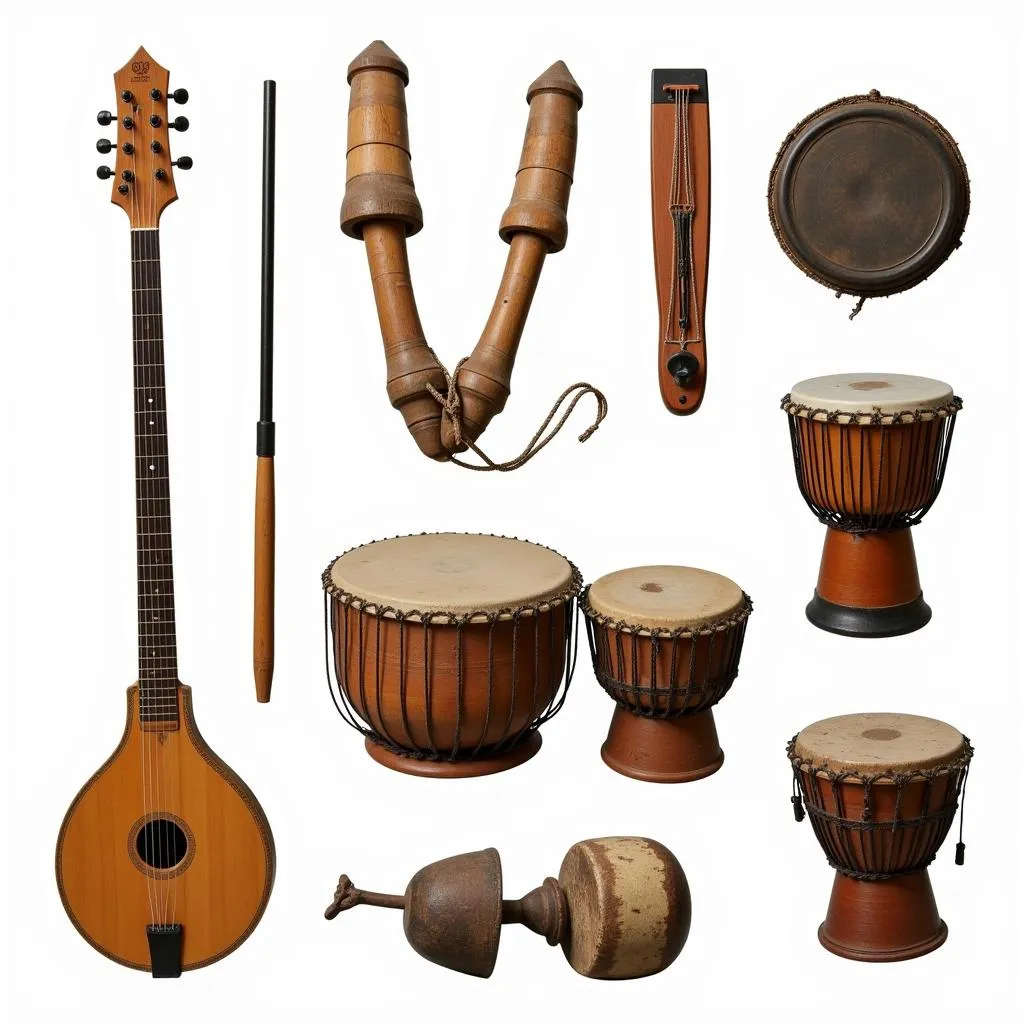 Music Instruments of 18th-Century Africa
Music Instruments of 18th-Century Africa
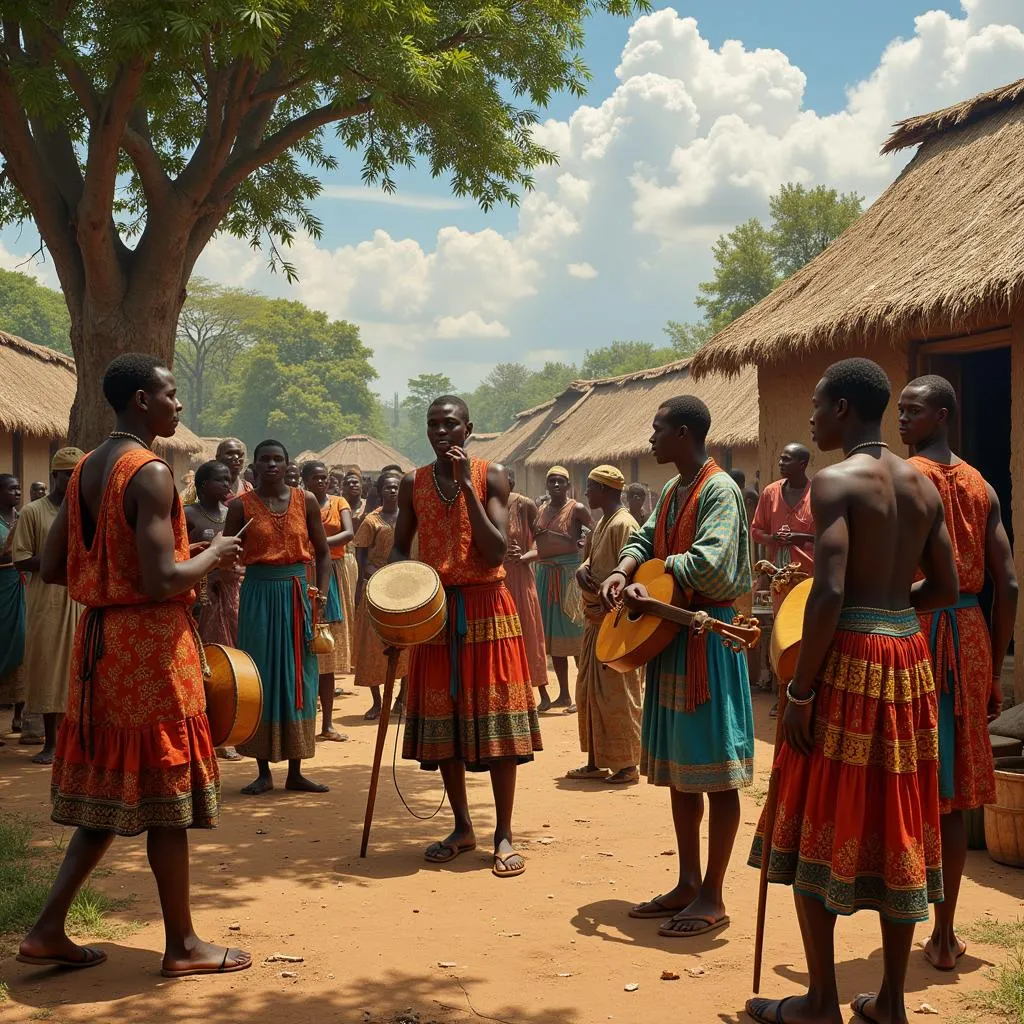 A Traditional Music Performance in 18th-Century Africa
A Traditional Music Performance in 18th-Century Africa
This journey through 18th-century African music reveals a vibrant and enduring cultural heritage. The rhythms, instruments, and vocal styles of this era continue to inspire and captivate audiences worldwide, showcasing the depth and richness of African musical traditions.

